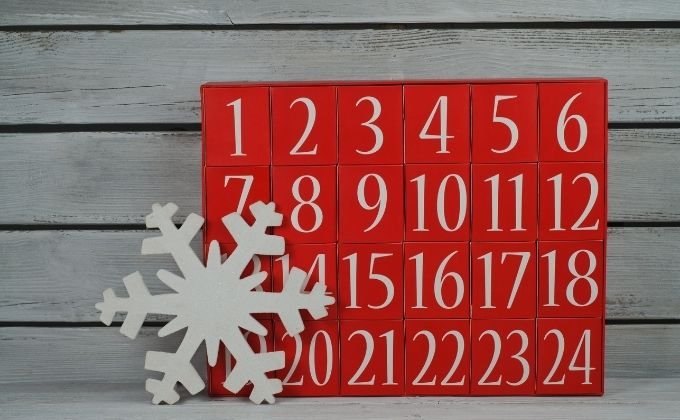In today’s fast-paced world, a family planner can be an invaluable tool for keeping everyone’s schedules organized and ensuring that family life runs smoothly. With so many options available—ranging from traditional paper planners to sophisticated digital apps—selecting the right family planner can be a daunting task. This guide will help you navigate the process of choosing a planner that fits your unique family needs, ensuring that you maximize its benefits for a more organized and harmonious home life.
Understanding Your Family’s Needs
Before diving into the options available, it’s essential to understand your family’s specific needs and preferences. Here are some key factors to consider:
- Family Size and Structure
- The number of family members and their varying schedules play a significant role in determining the type of planner you need. For larger families with diverse schedules, a planner with ample space and organizational features might be necessary.
- Communication Preferences
- Consider how your family communicates. If you prefer face-to-face discussions, a paper planner with visible layouts might be ideal. For families who are comfortable with digital tools and need real-time updates, a digital planner might be more effective.
- Daily Routines and Activities
- Think about the types of activities your family regularly engages in. Whether it’s extracurricular activities, work commitments, or household chores, your planner should be able to accommodate and track these activities efficiently.
- Technology Comfort Level
- Assess the level of comfort and familiarity your family has with technology. Some families may prefer the simplicity of a paper planner, while others might benefit from the features of a digital app.
Types of Family Planners
Once you’ve identified your family’s needs, you can explore the various types of family planners available:
- Paper Planners
- Weekly and Monthly Layouts: Paper planners often feature weekly and monthly spreads, allowing you to view schedules at a glance. These planners are suitable for families who prefer writing things down and enjoy the tactile experience of flipping through pages.
- Family Calendars: Wall-mounted family calendars provide a large, visible space for scheduling and can be a focal point for family organization. They are particularly useful for keeping everyone informed about upcoming events and deadlines.
- Customizable Planners: Some paper planners offer customizable layouts and sections, allowing you to tailor the planner to fit your family’s specific needs.
- Digital Planners
- Mobile Apps: Digital family planners come in the form of mobile apps that can be installed on smartphones and tablets. These apps often offer features such as shared calendars, task management, and real-time notifications, making them ideal for tech-savvy families.
- Online Calendars: Web-based calendars like Google Calendar or Microsoft Outlook provide a centralized platform for scheduling and task management. These tools often include sharing options, allowing family members to access and update the calendar from different devices.
- Integrated Planning Tools: Many digital planners offer integration with other tools, such as to-do lists, budgeting apps, and meal planning software, providing a comprehensive solution for family management.
Key Features to Look For
When choosing a family planner, consider the following features to ensure it meets your family’s needs:
- Usability
- Ease of Use: Whether digital or paper, the planner should be easy to use and navigate. Look for intuitive layouts and user-friendly interfaces that accommodate all family members.
- Scheduling and Organization
- Multiple Views: Opt for a planner that offers various views, such as daily, weekly, and monthly layouts. This flexibility allows you to plan in detail while keeping an eye on the bigger picture.
- Task Management: Features like task lists, reminders, and deadline tracking are crucial for managing daily responsibilities and ensuring that nothing falls through the cracks.
- Customization
- Personalization Options: For paper planners, look for options to add custom sections or pages. Digital planners often allow for customization of notifications, themes, and integrated tools.
- Space for Notes: Adequate space for jotting down additional information, notes, or personal reflections is beneficial for comprehensive planning.
- Integration and Sharing
- Family Access: Digital planners should offer features that enable sharing and collaboration among family members. Look for options that allow everyone to view, edit, and update the planner as needed.
- Syncing Capabilities: Ensure that the planner can sync with other apps or devices you use for seamless integration and up-to-date information.
Making the Decision
To choose the right family planner for your unique needs, consider the following steps:
- Evaluate Options
- Review the features and benefits of different planners. Compare paper planners with digital options and assess which aligns better with your family’s preferences and lifestyle.
- Trial and Feedback
- If possible, try out different planners to see how they work in practice. Gather feedback from family members to ensure that the chosen planner meets everyone’s needs and expectations.
- Budget Considerations
- While some planners are free, others may require a purchase or subscription. Consider your budget and weigh the cost against the features and benefits offered by the planner.
In conclusion, choosing the right family planner involves understanding your family’s unique needs, exploring various types of planners, and selecting features that align with your preferences. Whether you opt for a traditional paper planner or a digital app, the key is to find a solution that enhances organization, improves communication, and ultimately maximizes the quality time spent with your loved ones. With the right planner, you can transform family management from a chore into a streamlined and enjoyable process.



